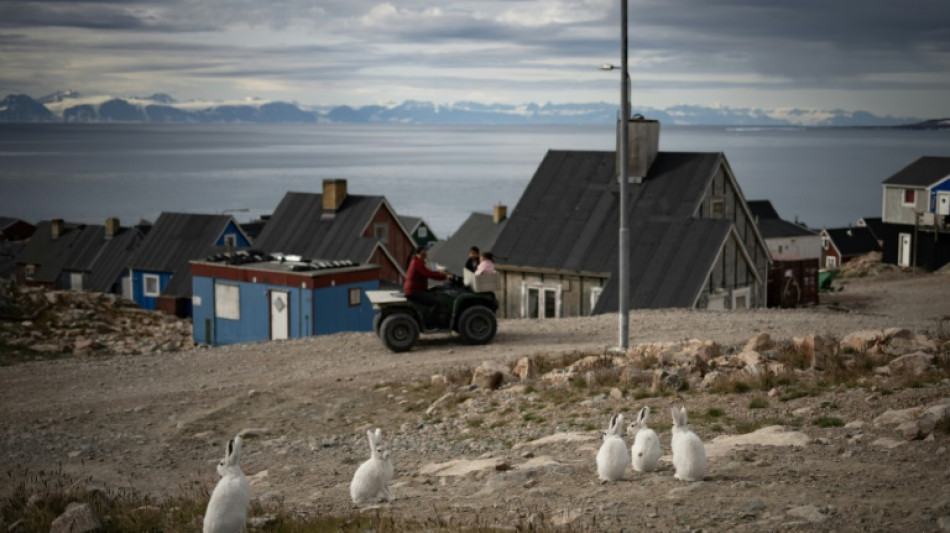The village at the end of the world / Photo: Olivier MORIN - AFP
The last Inuit hunters of Ittoqqortoormiit are a resilient bunch.
Surviving among the icebergs of Greenland's Scoresby Sound, one of the toughest and most remote places on the planet, has never been easy.
But their unique way of life is now in grave danger from galloping climate change.
The ice cut them off from the rest of the world for 11 months of the year, but it brought them the seals, musk ox, narwhals and polar bears that fed and clothed them through the long polar night.
All those old certainties are melting away with the glaciers as temperatures in the Arctic rise four times faster than elsewhere.
AFP photographer Olivier Morin captured life in Ittoqqortoormiit in the dying days of summer when young and old make the best of the few weeks when the living is easier.
The age-old and the latest fads rub shoulders in a surreal dance amid the quaint wooden houses painted in red, blue, yellow and ochre. Several have their own trampolines.
Hunters skin seals on the beach while a young girl dips the tail of her mermaid costume into the bracing waters of a swimming pool -- all under the curious gaze of white "Alice in Wonderland" Arctic hares that seem to be everywhere.
Old timers share a beer while polar bear hides that look like the beast has just slipped them off to go for a swim dry in the sun.
Quad bikes are stealing a march on dog teams as the ice melts and the Inuit too have been seduced by the beautiful game. In a place where no grass grows, Ittoqqortoormiit's only patch of green is the astroturf of its football pitch.
But behind the shy smiles, hunters say the cruise ships that are bringing more and more tourists to the fjords are scaring away the wildlife on which they depend, animals whose meat scientists warn is being dangerously polluted by "forever chemicals" from factories on the other side of the world.
T.Deshpande--BD
